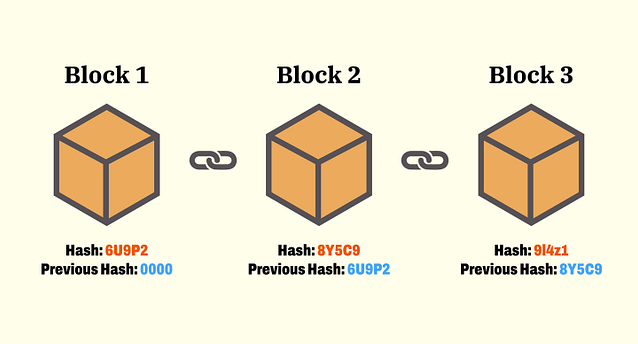What is blockchain?
Blockchain is a decentralized digital ledger technology that records transactions across a network of computers. It is most commonly associated with the Bitcoin digital currency, but it has many other uses as well.
A blockchain is made up of a series of blocks that contain information about transactions. Each block contains a unique code called a “hash,” as well as the hash of the previous block in the chain. This creates a chain of blocks that is linked together and cannot be altered, making it a secure way to record and store data.
Because it is decentralized, no single entity controls the information stored on a blockchain. Instead, the network is maintained by a group of users, known as “nodes,” who work together to validate transactions and add them to the blockchain.

Blockchain technology has the potential to revolutionize many industries, including finance, supply chain management, and voting systems, by providing a secure and transparent way to record and verify transactions without the need for a central authority.
Features of blockchain
Blockchain technology has several key features that make it unique and valuable:
Decentralization: Blockchain is a decentralized system, meaning that there is no central authority controlling it. Instead, it is maintained by a network of users who work together to validate transactions and add them to the blockchain.
Immutable: Once data is added to a block, it cannot be altered or deleted, making it a secure and tamper-proof way to store information.
Transparent: All users on a blockchain network can see and verify the transactions that have taken place, making it a transparent system.
Secure: Blockchain uses cryptography to secure the data stored on it, making it difficult for hackers to access or tamper with the information.
Smart Contracts: Smart contracts are self-executing contracts with the terms of the agreement written directly into lines of code. These can be executed automatically when specific conditions are met.
High availability: Blockchain is designed to be highly available, meaning that it is always accessible and can be used at any time.
Interoperable: It is possible to connect different blockchain networks to each other, allowing them to share data and exchange value.
anonymity: Blockchain allows users to remain anonymous while conducting transactions, providing them with a high level of privacy.
Overall, Blockchain technology can be used in various industries such as finance, supply chain management, and voting systems, due to its security, transparency and immutability features.



